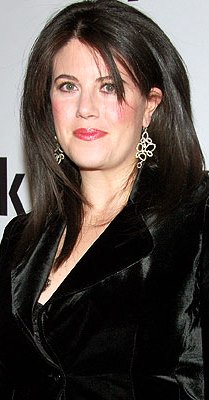
Lifestyle/Community

Trevor Noah, Monica Lewinsky and us
GEOFF MITELMAN
‘From shame to praise’
Republished from MYJEWISHLEARNING.com
Understandably, Noah – like Lena Dunham a few weeks ago – quickly experienced some significant backlash. And it made me think of a new book that’s just come out by Jon Ronson entitled “So You’ve Been Publicly Shamed”.
 As Ronson notes, in the Internet age, any stupid comment or any poor decision gets recorded forever, and there are often consequences that linger for years later.
As Ronson notes, in the Internet age, any stupid comment or any poor decision gets recorded forever, and there are often consequences that linger for years later.
RIGHT: THE PRICE OF SHAME – Monica Lewinsky’s own narrative
The problem is that yes, sometimes that condemnation is warranted. But sometimes it’s not. And the real question is not whether or not the person deserved our excoriation.
The question is how we ourselves are contributing to this culture of public shaming, and how it is impacting each one of us.
Tomorrow, we start celebrating Passover, and Jewish tradition tells us that when we tell the story of Passover, “we begin with shame and end with praise”.
When we were slaves in Egypt, we were in a place of humiliation and degradation, so we start our story in shame.
Yet we move from shame to praise, from the slavery of feeling humiliated to the liberation of owning our own story. And one person who has started to turn from shame to praise in her own life is Monica Lewinsky.
Lewinsky recently gave a TED talk entitled “The Price of Shame”, and she says that she has started to tell her story because “it was time for her own her own narrative.” But what drove her to speak up now, after over a decade of silence, was the epidemic of easy public shaming, and in particular, the death of Tyler Clementi.
 So in her talk, she argues that “[w]e need to return to a long-held value of compassion – compassion and empathy. Online, we’ve got a compassion deficit, an empathy crisis.”
So in her talk, she argues that “[w]e need to return to a long-held value of compassion – compassion and empathy. Online, we’ve got a compassion deficit, an empathy crisis.”
LEFT: IS IT ABOUT US?: Trevor Noah at his new employer, Comedy Central
In fact, that’s why the book of Exodus exhorts us to be compassionate and empathetic: because “[we] know how it feels to be a stranger because [we] were strangers in the Land of Egypt.”
It’s easy to talk about how terrible someone is online. It’s harder to stand up to cyber-bullying, or to post words of encouragement to someone going through a rough patch. We get to decide how we speak and act both online and face-to-face.
And that’s why blogger Ijeoma Oluo reminds us that our reaction to Trevor Noah or Lena Dunham is not so much about them as it is about us. As she tells us:
- We are not our intentions
- Our intentions don’t mean squat
- We are our deeds
Everything we do, good and bad, makes us who we are. Our honesty and integrity are what matter. Being anti-racist doesn’t mean that you are never racist, it means that you recognise and battle racism in yourself as hard as you battle it in others
Indeed, as we have to go from shame to praise we go through a journey in the wilderness that will be filled with struggles, setbacks and missteps.
The Internet, too, is a wilderness that we are still trying to figure out how to navigate. But as we think about what we post and we comment on – whether that’s about a friend or a celebrity – I particularly like these three questions to help us move from shame to compassion:
- Is it true?
- Is it necessary?
- Is it kind?
If those ideas can guide our online and our face-to-face world, then we might truly be able to feel liberated and redeemed.






